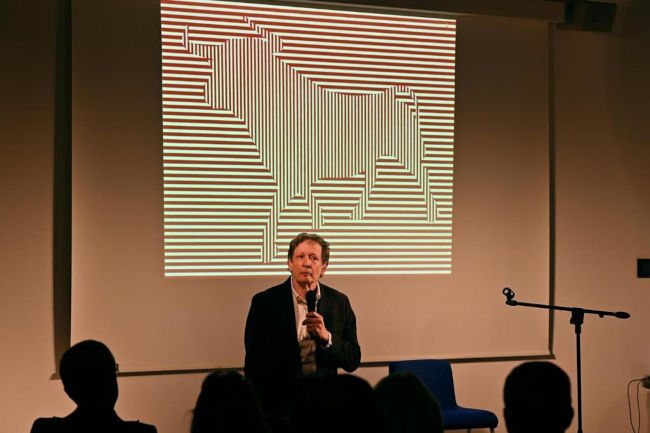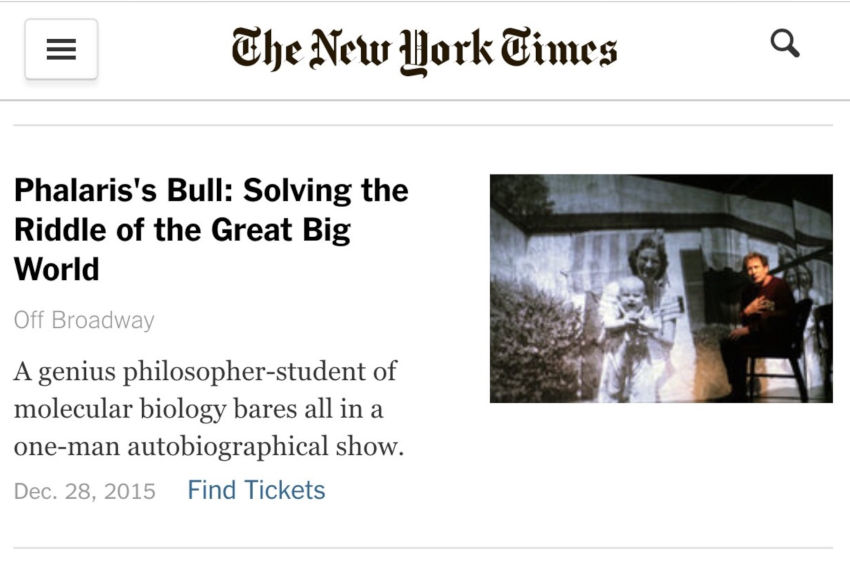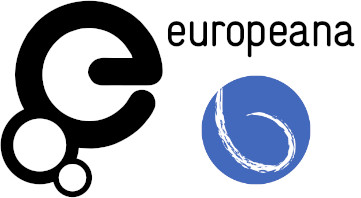Tuesday, March 26, 2024, 7PM (19.00)
"Milutin Bojić" Library, Ilije Garašanina 5
HAL (Sentient AI), and the Logic of Epistemic (Rigorous) and Heuristic (Problem-Solving) Spaces
Lecture by Steven Friedman,
Guest: Ljubiša Bojić, Institut for Philosophy and Social Theory, University of Belgrade
Moderator: Andrija Sagić
HAL, a reference to the sentient AI computer of Kubrick and Clark in 2001: A Space Odyssey, is an acronym of Heuristically programmed ALgorithmic computer. All AI systems are heuristic. Heuristic spaces are identity spaces in which two things are approximately equal, for some purpose—as two chairs, or the interchangeable parts of two computers. They are convergent spaces, in which elements of any kind and number are brought together and ordered to achieve a creative result—from an artwork to a technology. AI systems are of such a nature, and are goal directed. The governing principle of such spaces: any result is achievable at some order of convergence.
Every heuristic result must be tested. Because it is not a rigorous space, results cannot be known to work in advance.
An epistemic space is a rigorous space. Rigor is of difference—that any two things, by virtue of whatever makes them two and not one—are rigorously distinct, so what applies to one—any concept or result—does not rigorously apply to the other. It’s the space of existence, of dignity, of freedom, and of what religions have called “salvation”—a complete solution to our circumstances here and now and independent of any possible futures.
AI, as technologies generally, can help us survive—solve problems—by expanding compatible environmental circumstances; philosophy, operating at the limit of rigor, resolves the terms of any problem that presents, regardless of circumstance.
 Steven Friedman has been designated a “polymath” by The New Yorker for his contributions to fields as diverse as philosophy, molecular biology, visual art, poetry, playwriting and performance. The New York Times has acclaimed him a “genius philosopher . . . genius . . . of molecular biology.” The U.S. State Department has designated him “the best in American culture.” He studied philosophy at Harvard, where he graduated cum laude and was written off as the “star performer” of the Department. Under a grant from the National Cancer Institute, he pursued medicine and molecular biology at UCLA, where his contributions ranged from developing methods to elucidate the structure of viruses, to explicating mechanisms of control of cell differentiation, to conceiving smart chemotherapeutics against cancer. As a fine artist, Friedman has been represented at Robert Berman Gallery at Bergamot Station Arts Center in Los Angeles since since 1999. San Francisco’s Museum of Modern Art has characterized his art, which has entered major collections around the world, as “a new mode of visual representation.” His writings include over 200 works of philosophy; six collections of lyric poetry; the play, A Passion of the Mind (1980); and the philosophical narrative poem, The Books of Joshua (2008). His output has also included the beachbook, T LIte Book by the Sea, in 5000 tea-lights in 2009 and the skybook, Proving God in Worlds from Even to Odd, in 2010. His philosophical/autobiographical monodrama Phalaris’s Bull: Solving the Riddle of the Great Big World premiered in NYC, opened the 63rd Ohrid Summer Festival, and most recently was performed at Oxford University—the first performance of a play ever hosted by the Oxford Philosophy Society. Since 2018, he has given international talks and performances sponsored by the U.S. State Department and since 2020 has delivered annual talks for UNESCO’s World Philosophy Day.
Steven Friedman has been designated a “polymath” by The New Yorker for his contributions to fields as diverse as philosophy, molecular biology, visual art, poetry, playwriting and performance. The New York Times has acclaimed him a “genius philosopher . . . genius . . . of molecular biology.” The U.S. State Department has designated him “the best in American culture.” He studied philosophy at Harvard, where he graduated cum laude and was written off as the “star performer” of the Department. Under a grant from the National Cancer Institute, he pursued medicine and molecular biology at UCLA, where his contributions ranged from developing methods to elucidate the structure of viruses, to explicating mechanisms of control of cell differentiation, to conceiving smart chemotherapeutics against cancer. As a fine artist, Friedman has been represented at Robert Berman Gallery at Bergamot Station Arts Center in Los Angeles since since 1999. San Francisco’s Museum of Modern Art has characterized his art, which has entered major collections around the world, as “a new mode of visual representation.” His writings include over 200 works of philosophy; six collections of lyric poetry; the play, A Passion of the Mind (1980); and the philosophical narrative poem, The Books of Joshua (2008). His output has also included the beachbook, T LIte Book by the Sea, in 5000 tea-lights in 2009 and the skybook, Proving God in Worlds from Even to Odd, in 2010. His philosophical/autobiographical monodrama Phalaris’s Bull: Solving the Riddle of the Great Big World premiered in NYC, opened the 63rd Ohrid Summer Festival, and most recently was performed at Oxford University—the first performance of a play ever hosted by the Oxford Philosophy Society. Since 2018, he has given international talks and performances sponsored by the U.S. State Department and since 2020 has delivered annual talks for UNESCO’s World Philosophy Day.
This lecture is supported by US State Department and co-organized by Serbian Branch of the Millenium Project





